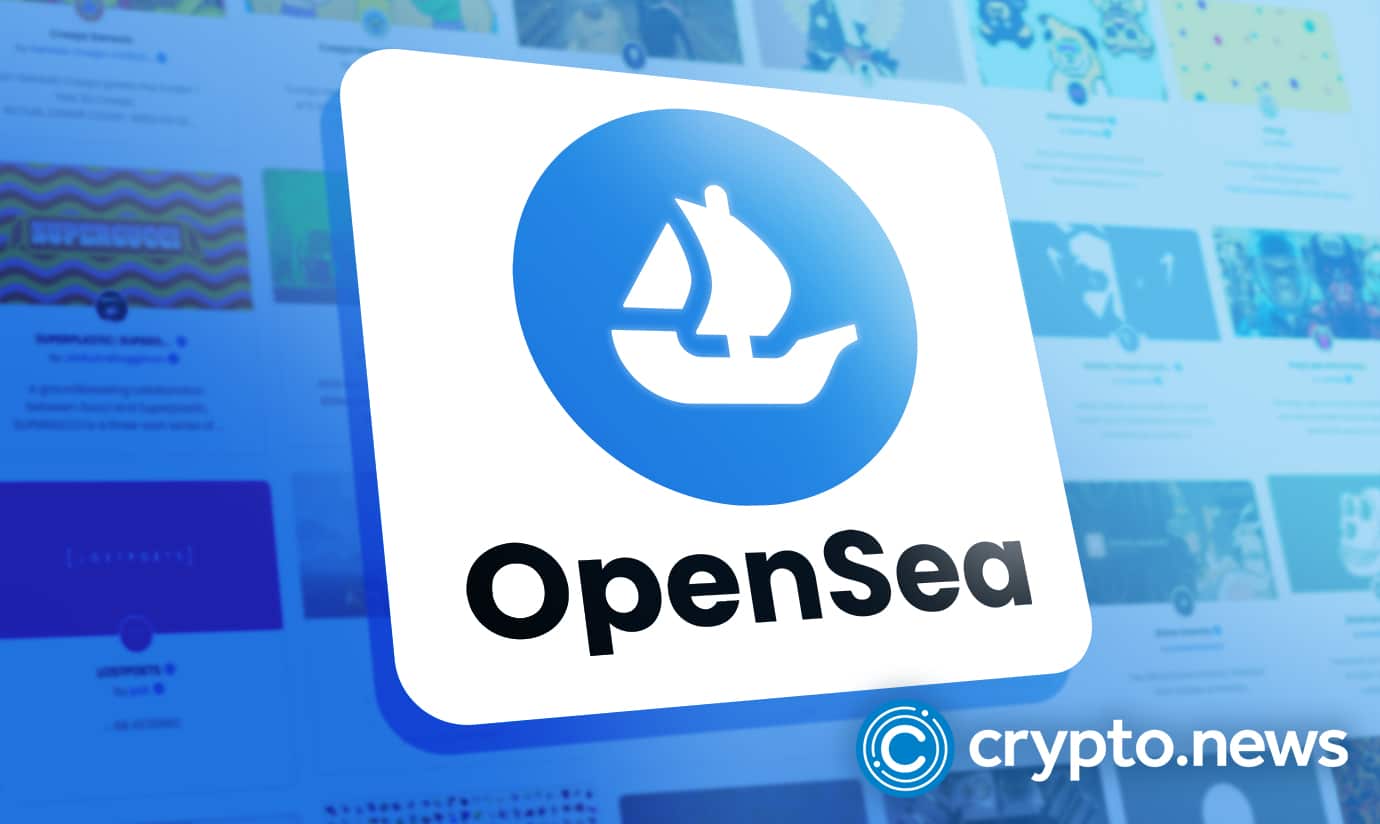OpenSea implements zero fees as it takes on Blur

Amid the ongoing competition with Blur, OpenSea made a recent announcement on Twitter that revealed several significant changes to its business as it attempts to regain the customers it may have lost to Blur. OpenSea notably announced that it had eliminated all fees for its user base.
A new market feature will also be introduced as part of this new development and optional creator profits for collections that do not have on-chain enforcement.
A look into the new OpenSea developments
OpenSea is now offering a limited-time deal in which the NFT marketplace fees will be waived altogether. In addition, the company is transitioning to a creator earnings model that requires a minimum of 0.5% but allows sellers to pay more. OpenSea said this will apply to all old and new collections that do not use on-chain enforcement.
Creators won’t have to make the misleading decision between collecting revenue on OpenSea or Blur since the company is also changing the operator filter to permit sales utilizing NFT marketplaces with the same regulations (including Blur, as long as they follow through on their commitment).
OpenSea had no option amid the change in investors’ marketplace preferences
According to data by Dune, 80% of the entire ecosystem volume does not pay total creator profits. The bulk of the book (even when accounting for inorganic activity) has relocated to an environment with no transaction fees. Because of this, OpenSea has decided to switch to a new price structure that better matches the requirements of modern ecology.
There has been a significant paradigm change in the environment around NFTs. Throughout October, OpenSea saw a substantial migration of volume and users to NFT marketplaces that do not strictly enforce author earnings. Despite their best efforts, the pace of this change has significantly picked up since Blur’s announcement.
OpenSea asserts that they were only working to protect creator earnings on all collections, which they claim other companies didn’t, leading them to develop the Operator Filter. They did this because they believed that on-chain enforcement was the most effective way for creators to protect their revenue stream from the ongoing resale of their work.
The company had high hopes of sparking broad enforcement of creator profits and anticipated that others would come up with better long-lasting solutions; unfortunately, this has not been the case thus far, forcing them to follow suit like other marketplaces.
Considering recent events, such as Blur’s decision to roll back creator earnings (even on filtered collections) and the “false choice” they’re forcing creators to choose between liquidity on Blur or OpenSea, proved that OpenSea’s efforts are not working. The marketplace creators also claims Blur’s decision to roll back creator earnings (even on filtered collections) was one of these events.

















